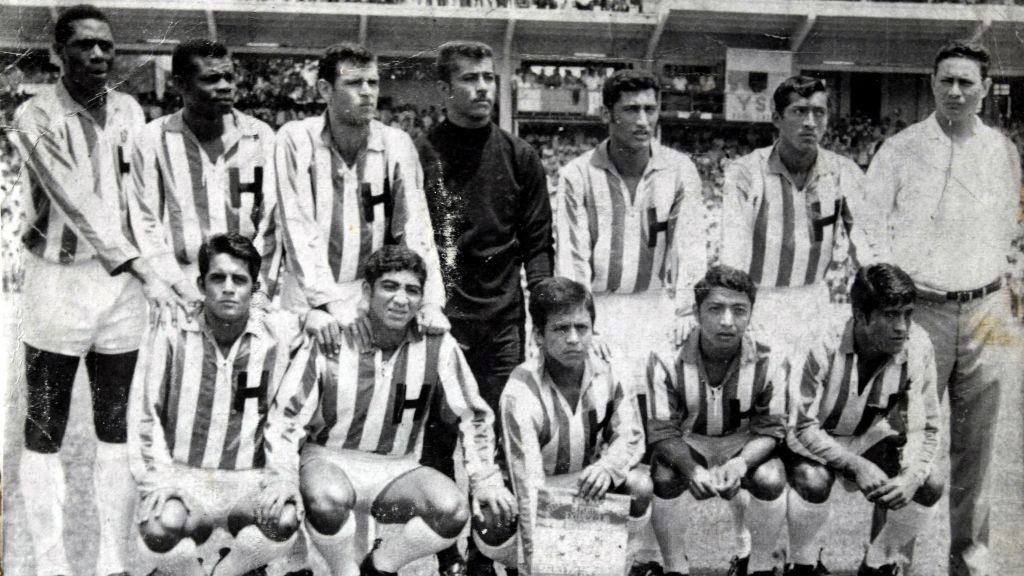14 July 1969: The Football War kicks off in Central America
The Football War begins after El Salvador defeats Honduras in a World Cup qualifier and then invades, on this day in 1969.


Get the latest financial news, insights and expert analysis from our award-winning MoneyWeek team, to help you understand what really matters when it comes to your finances.
You are now subscribed
Your newsletter sign-up was successful
Want to add more newsletters?

Twice daily
MoneyWeek
Get the latest financial news, insights and expert analysis from our award-winning MoneyWeek team, to help you understand what really matters when it comes to your finances.

Four times a week
Look After My Bills
Sign up to our free money-saving newsletter, filled with the latest news and expert advice to help you find the best tips and deals for managing your bills. Start saving today!
There are few pastimes taken more seriously in Latin America than football. And while love of the beautiful game has thankfully never sown the seeds of war, in 1969, it's been said to have triggered one between El Salvador and Honduras (although it's more likely the footie simply delayed hostilities).
After all, resentment between the two countries had been simmering away for years. El Salvador, Central America's smallest and most densely populated country, had one million more citizens than its neighbour, Honduras, which had five times more land. And while Honduras had a largely agrarian economy (Hondurans were the lowest paid on the isthmus), El Salvador's was more industrialised.
Around 300,000 Salvadoreans crossed over the border in search of farmland, prompting Honduras to pass a law allowing for only their nationals to own land. Salvadoreans already in the country could either register as Hondurans or leave.
MoneyWeek
Subscribe to MoneyWeek today and get your first six magazine issues absolutely FREE

Sign up to Money Morning
Don't miss the latest investment and personal finances news, market analysis, plus money-saving tips with our free twice-daily newsletter
Don't miss the latest investment and personal finances news, market analysis, plus money-saving tips with our free twice-daily newsletter
Then, amid the heated rhetoric, the two countries faced off against each other to win a coveted place at the 1970 World Cup in Mexico. To add to the tension, the matches were agonisingly close.
Fighting between the fans broke out at the first match played in the Honduran capital, Tegucigalpa, with the home side winning 1-0. El Salvador won the return leg in San Salvador 3-0, set against more rioting. The decider was held in neutral Mexico City and won by El Salvador by three goals to two, but only after extra time.
The qualification spot in the bag, El Salvador broke off diplomatic ties with Honduras, accusing the latter of promoting genocide against it citizens with its land ownership law. Two weeks later, the Salvadorean army-backed government of Colonel Fidel Snchez Hernndez ordered an invasion of Honduras. The first troops crossed the border on 14 July 1969.
It was by far the biggest crisis the Organisation of American States (OAS) had faced in its 21-year history, since it had been set up to counter the creeping threat of Castroism' following the communist takeover in Cuba.
But after initially refusing to budge, El Salvador agreed to withdraw its troops when threatened with economic sanctions. The so-called Football War' had lasted just over four days.
Also on this day
14 July 1791: the Priestley riots' sweep Britain
Get the latest financial news, insights and expert analysis from our award-winning MoneyWeek team, to help you understand what really matters when it comes to your finances.

-
 UK interest rates live: experts expect MPC to hold rates
UK interest rates live: experts expect MPC to hold ratesThe Bank of England’s Monetary Policy Committee (MPC) meets today to decide UK interest rates. The last meeting resulted in a cut, but experts think there is little chance of interest rates falling today.
-
 MoneyWeek Talks: The funds to choose in 2026
MoneyWeek Talks: The funds to choose in 2026Podcast Fidelity's Tom Stevenson reveals his top three funds for 2026 for your ISA or self-invested personal pension